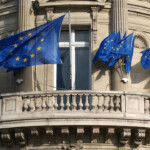‘It is uncertain whether Turkey, at the NATO summit in Vilnius, will maintain its opposition to Sweden’s membership. Whatever the outcome, Turkey will still remain the elephant in the room that cannot be ignored.’
Turkey is the perennial elephant in the room. Particularly after the presidential elections in May, it is too large to be ignored but an issue that needs to be addressed.
During the Cold War Turkey was a staunch member of NATO that could be relied on but since Russia’s invasion of Ukraine it has pivoted into the enemy camp. The founder of the Republic, Mustafa Kemal’s maxim of peace at home and peace abroad has been upended and since the advent of the Justice and Development Party (AKP) in 2002 Turkey has become the source of endless conflict.
On October 29 Turkey will celebrate the centenary of the foundation of the Turkish Republic but apart from a nod to the founder, it will not be Atatürk’s republic they celebrate. In 2013 Foreign Minister Ahmet Davutoǧlu, the architect of Turkey’s ‘neo-Ottoman’ foreign policy, made it clear that the governing AKP regarded the century of Republican rule as “a parenthesis” they intended to close.
When he was nominated prime minister a year later, Davutoǧlu described the last 12 years of AKP rule as “a restoration movement” to restore Islamic values in Turkish society. Already in 2009, in a keynote speech in Sarajevo, he made it clear that the goal of Turkish foreign policy was to restore Turkey’s hegemony in the Balkans, the Caucasus and the Middle East “as in the 16th century.”
This expansionist policy led to Turkey’s engagement not only in Syria, Libya and Iraq but also a Turkish presence in the Persian Gulf, the Red Sea and Africa’s Horn, not to mention Cyprus.
Davutoǧlu spoke of “zero problems with neighbours” but this policy backfired, leading to what Ibrahim Kalın, who replaced Davutoǧlu as chief ideologue, termed “precious loneliness.”
Veteran Turkish journalist Cengiz Çandar and Lebanese editor Jihad al-Zein, a former AKP supporter, slammed this policy, as it had reduced “the Turkish model”, that of a democratic Muslim state, to a (Sunni) sectarian government in conflict with, for example, Syria and Egypt.
Partly because of Turkey’s precarious economic situation, President Erdoǧan’s government has in recent years scrambled to restore friendly relations with neighbouring states, not least as a spin-off of the Abraham Accords.
Now, Egypt and Turkey have agreed to a full normalization of diplomatic ties after a standoff since Erdoǧan’s espousal of the Muslim Brotherhood.
Erdoǧan’s Vision:
Both Mustafa Kemal and Recep Tayyip Erdoǧan are men of vision; the former created a secular republic and the latter intends to create an Islamic state. Now elected for a third term as president, Erdoǧan has declared the next century will be “the century of Türkiye”. The present constitution, “inherited from the coup plotters” in 1980, which relegates the role of religion to a matter of personal conviction, will be replaced by a new civilian constitution, as yet undefined.
Credit must be given where credit is due. In 1997, when Erdoǧan was mayor of Istanbul for the Islamist Refah (“Welfare Party”), he declared “Democracy is not our aim. It is the vehicle.”
In 2017 Erdoǧan, then president, campaigned for a referendum on constitutional amendments, which would transform Turkey from being a parliamentary democracy to presidential rule. The president would become both head of state and head of government with the power to issue executive decrees.
In his campaign Erdoǧan stated that he had planned for an executive presidency since he was mayor of Istanbul. The amendments were approved by 51.41 percent of the votes, that is, by a narrow margin. However, the electoral board had decided that unstamped ballots could also be included.
The first decade of AKP rule was heralded with a fanfare of trumpets, and President Barack Obama spoke of a “model partnership” between a predominantly Christian and a predominantly Muslim nation. In 2013, with the crackdown on the nationwide protests against the demolition of Gezi Park in Istanbul, reality kicked in.
Dutch liberal Marietje Schaake concluded, “Our dream of a European Turkey has turned into a nightmare and it is time for a wake-up call.” As award-winning Turkish journalist Sedat Ergin noted, the EU and the U.S. had bought the AKP’s narrative and saw its deviation from democratic values too late.
But where is Turkey heading? In 2012 Erdoǧan declared it was the government’s intention to create “a pious generation” and the education system has been tailored accordingly with the emphasis on religious high schools and an amended curriculum. However, this backfired the following year with the Gezi Park protests.
Nevertheless, the AKP government has launched a pilot scheme to appoint imams and preachers as ‘spiritual counselors’ to elementary and secondary schools.
The Economy:
Turkey’s Achilles heel is its credit-driven, construction-based economy, which American economist Jesse Columbo warned already nine years ago was heading for a bust.
This is aggravated by Erdoǧan’s insistence that interest rates are “the mother and father of all evil.” He has already told the Turkish Industry and Business Association (TÜSIAD) that as a Muslim he would continue to lower interest rates in accordance with Islamic teaching and has fired three central bank governors for not reducing them.
Now, faced with devastating inflation, a record current account deficit, a collapsing lira and the exodus of foreign investors, Erdoǧan has reinstated a former finance minister, Mehmet Şimşek, who signals a return to a ‘rational’ economic policy.
Driven by necessity, the president is set to embark on a tour of the Gulf states, the Emirates, Saudi Arabia and Qatar, to make up for the shortfall of Western investment.
At the same time, Turkey has become economically dependent on Russia, as Russia has maintained its position as Turkey’s largest trading partner in terms of goods purchased.
It is uncertain whether Turkey, at the NATO summit in Vilnius, will maintain its opposition to Sweden’s membership. On the other hand, Erdoǧan at a meeting with Ukraine’s President Zelensky on Saturday stated that Ukraine deserves NATO membership. Whatever the outcome, Turkey will still remain the elephant in the room that cannot be ignored.
The views and opinions expressed above are the author’s and do not represent those of the Free Turkish Press.


